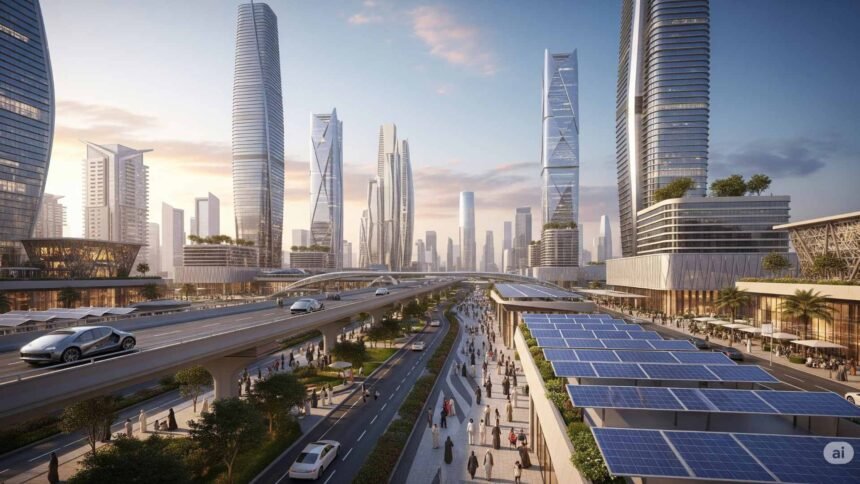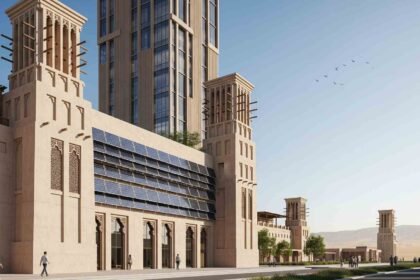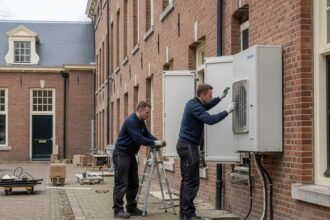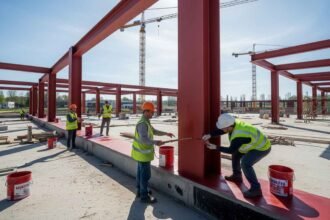In the rapidly evolving landscape of urban development, the Gulf region has emerged as a pioneering hub for smart cities—innovative urban spaces that leverage advanced technologies to enhance quality of life, efficiency, and sustainability. As of 2025, countries like Saudi Arabia, the United Arab Emirates (UAE), Qatar, and Kuwait are at the forefront of this transformation, driven by ambitious visions to diversify their economies, address rapid urbanization, and position themselves as global leaders in sustainable urban planning.
Defining Smart Cities in the Gulf Context
Smart cities are urban areas that use information and communication technologies (ICT) to improve operational efficiency, share information with citizens, and enhance government services. In the Gulf, this concept is not just about technology; it is a strategic response to the region’s unique challenges, including rapid population growth, high urbanization rates, and the need to reduce dependency on oil revenues. For instance, the Gulf Cooperation Council (GCC) countries, home to just 0.61% of the world’s population, contribute 2.4% of global greenhouse gas emissions, highlighting the urgent need for sustainable urban solutions.
Key Smart City Projects in the Gulf
The Gulf region is home to some of the world’s most ambitious smart city projects, each reflecting the region’s commitment to innovation and sustainability:
- Neom, Saudi Arabia: Launched in 2017 as part of Saudi Arabia’s Vision 2030, Neom is a $500 billion megacity spanning 10,230 square miles. Initially planned for 1.5 million residents, it has been scaled back to accommodate 300,000 by 2030. Neom emphasizes sustainability through water desalination, solar and wind power, green hydrogen production, and smart energy grids. Despite facing budget cuts and setbacks, it remains a flagship project for the kingdom’s modernization agenda.
- Masdar City, UAE: Located in Abu Dhabi, this $19 billion green-urban development is a global benchmark for sustainability. Masdar City runs entirely on solar power, features AI-driven traffic systems, and is advancing technologies like 6G and drone delivery. Its buildings consume 40% less energy and water than conventional properties, making it a model for eco-friendly urban living.
- Lusail City, Qatar: Situated along the Persian Gulf coast, Lusail is a visionary project designed to redefine urban living. It focuses on sustainability through smart transportation, energy-efficient infrastructure, and waste management systems. Lusail also played a key role in hosting the 2022 FIFA World Cup, showcasing its advanced urban capabilities.
- Saad Al-Abdullah City, Kuwait: Part of Kuwait’s Vision 2035, this $4 billion smart and green city is designed to house 400,000 residents. It includes smart energy monitors, e-government services, and plans for eight additional such cities, reflecting Kuwait’s commitment to sustainable urban expansion.
These projects are part of a broader trend across the Gulf, where smart city initiatives are being implemented at multiple levels—within existing cities, as subcities, and as entirely new urban centers.
Technological Innovations Driving Smart Cities
The Gulf’s smart cities are powered by cutting-edge technologies that redefine urban living:
- Internet of Things (IoT) and AI: Cities like Masdar and Neom use IoT devices and AI to optimize traffic flow, manage energy consumption, and enhance public services. For example, Masdar’s AI-driven traffic systems reduce congestion, while Neom plans to deploy autonomous vehicles and drones for transportation and delivery.
- Renewable Energy: Sustainability is a core focus, with projects like Masdar City running entirely on solar power and Neom investing in solar, wind, and green hydrogen. Smart grids ensure efficient energy distribution, reducing reliance on fossil fuels.
- Smart Infrastructure: From Lusail’s sustainable transportation systems to Kuwait’s smart energy monitors, infrastructure is designed to be both efficient and environmentally friendly. These cities also prioritize digital connectivity, with the UAE leading globally in fiber-to-the-home (FTTH) penetration at 93.7%.
- E-Government Services: Smart cities are integrating digital platforms for public services, making governance more accessible and efficient. For instance, Saad Al-Abdullah City emphasizes e-government initiatives to streamline administrative processes.
These innovations address immediate urban challenges and position the Gulf as a testing ground for future urban technologies.
Influence on Urban Development
The rise of smart cities in the Gulf is reshaping urban development in profound ways:
- Economic Diversification: Smart cities are central to the region’s efforts to move beyond oil dependency. Saudi Arabia’s Vision 2030, Dubai’s Plan 2021, and Kuwait’s Vision 2035 all prioritize knowledge-based economies, attracting global investment and talent. For example, Neom aims to create a hub for innovation and technology, while Masdar City focuses on sustainability research and development.
- Sustainability and Environmental Impact: With urban populations in the Arab world expected to double by 2030, smart cities are crucial for managing resources efficiently. Innovations in water desalination, renewable energy, and waste management are reducing the environmental footprint of urban growth. Masdar City’s energy-efficient designs and Lusail’s smart infrastructure are prime examples.
- Improved Quality of Life: Smart cities offer enhanced public services, better connectivity, and higher living standards. Features like smart transportation, digital health services, and e-governance make urban living more convenient and inclusive.
- Geopolitical Implications: The development of smart cities has attracted significant international involvement, particularly from China. Huawei’s $400 million cloud investment in Saudi Arabia and Alibaba’s presence in Oman are part of China’s $79 billion Digital Silk Road initiative. While this brings technological expertise, it also raises concerns about data security and geopolitical influence.
Challenges and Criticisms
Despite their potential, smart cities in the Gulf face significant challenges:
- Surveillance and Privacy: The extensive use of technology for monitoring raises privacy concerns. For instance, Iran’s use of surveillance cameras to enforce dress codes highlights the risks of repression through technology. Similar concerns exist for Gulf projects, where extensive data collection could lead to privacy violations.
- Social Impacts: Large-scale projects can disrupt local communities. Neom’s development has faced criticism for forced evictions and human rights abuses, raising questions about social equity.
- Cybersecurity Risks: As cities become more digitized, they become vulnerable to cyber threats. Robust cybersecurity measures are essential to protect critical infrastructure and citizen data.
- Technological Dependency: Over-reliance on advanced technologies could pose risks if systems fail or if there are disruptions in global supply chains. Additionally, an overemphasis on technology may overshadow human-centric approaches, potentially affecting community well-being.
Future Prospects
The Gulf’s smart cities are transforming local urban landscapes and setting global standards for sustainable urban development. Projects like Neom and Masdar City are showcasing how technology can be harnessed to create livable, efficient, and environmentally friendly cities. As these initiatives progress, they will continue to evolve, incorporating new technologies and addressing emerging challenges.
Moreover, the Gulf’s smart cities are influencing urban planning worldwide, offering models for how to integrate technology with urban development to meet the needs of growing populations while preserving resources. By 2030, these cities could become benchmarks for global urban innovation, demonstrating the power of technology to drive sustainable and inclusive growth.
Smart cities in the Gulf are reshaping urban development, driving economic diversification, and setting new standards for sustainability and innovation. From Neom’s ambitious vision to Masdar City’s sustainable blueprint, these projects are transforming the region into a global leader in urban technology. However, they also present challenges, including privacy concerns, social impacts, and cybersecurity risks, which must be carefully managed to ensure equitable benefits and respect for human rights. As the Gulf continues to invest in these transformative projects, the world will be watching closely, learning from both their successes and their challenges.







